Akira Kamimura, a member of our project, organized the PPIA International Seminar “Pastoralism, Spirituality, and Performance: Mongolia and Kenya” at the Tokyo University of Foreign Studies (TUFS). Akira Kamimura, Troy Sternberg, and Chieko Hirota from PPIA, and Surna from Chiba University presented their research.
Troy Sternberg’s presentation based on observations of the local landscape revealed the conflict between religious and faith-related development and traditional cultures in Mongolian and Kenyan pastoral societies. Akira Kamimura reported on the unique cultural landscape in contemporary Mongolia, where the steppe and the traditional dances of various ethnic groups are united, as exemplified by a dance video that became popular on social media.
Chieko Hirota reported on the seasonal migration of Kazakh herders in western Mongolia, and Suruna was inspired by the pandemic era and reported on the countermeasures of Inner Mongolian herders regarding livestock injuries or diseases.
Some of the landscapes presented during the workshop were very impressive: Troy Sternberg’s photographs of the Mongolian steppe mixed symbols of various doctrines, such as ancestral rituals and socialism, or Buddhist statues that could be a destination for modern domestic tourism. The action of the Dance Challenge, as demonstrated by Akira Kamimura, amplified the contemporaneous images of young people dancing traditional dances on the steppe in a video posting service. These were interesting because they probably reflect the reality of today’s Mongolia.

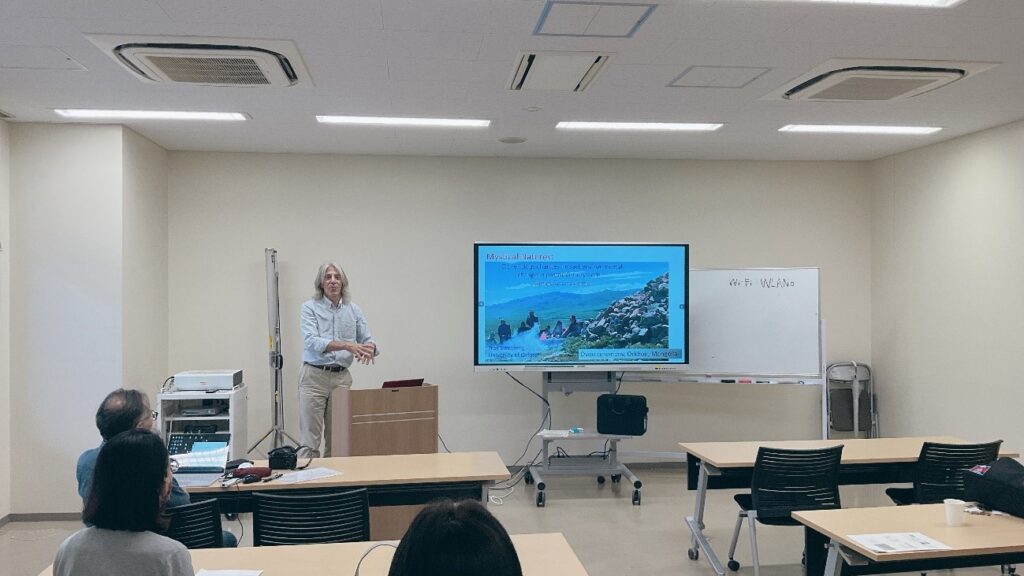
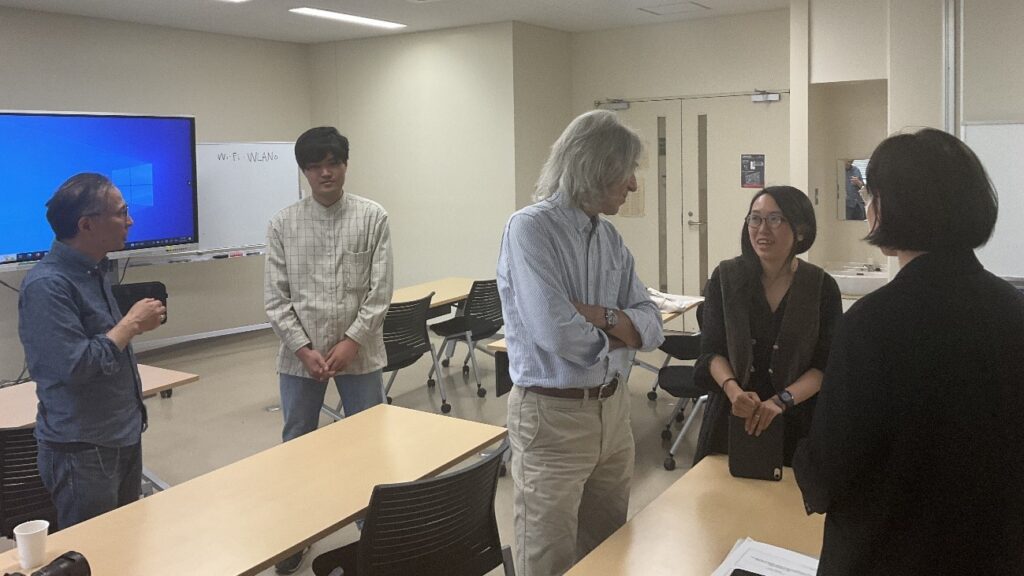
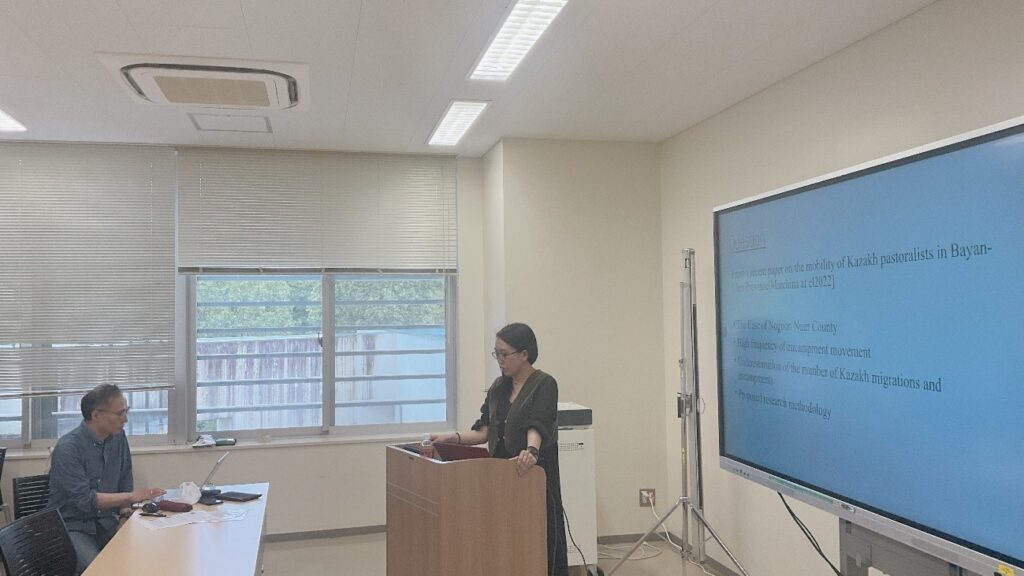
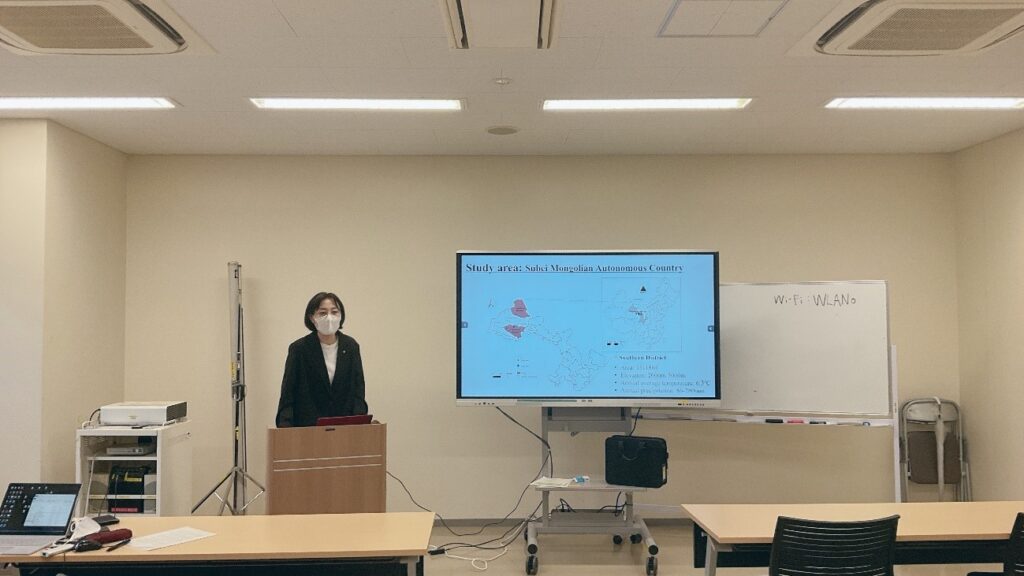
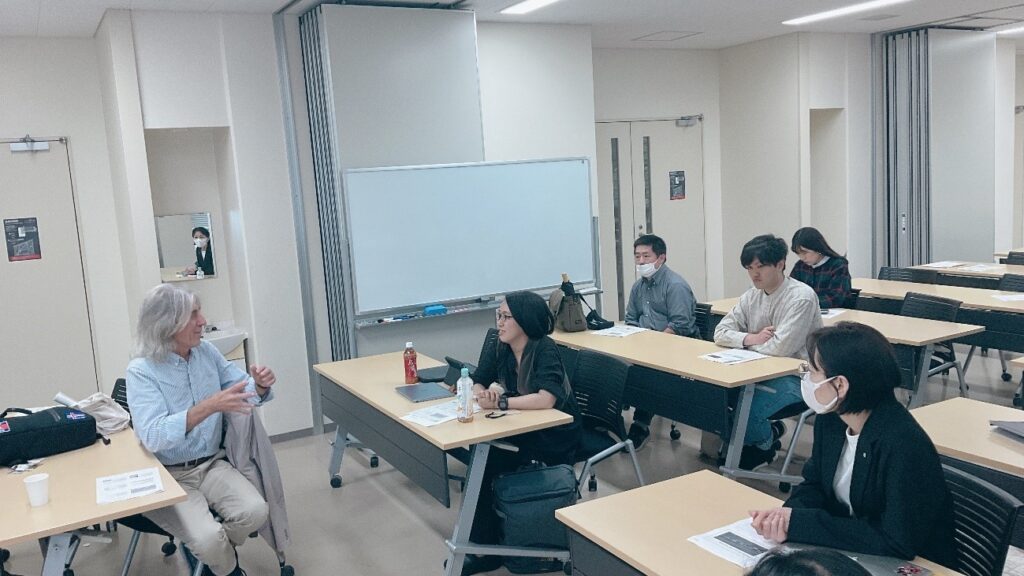
Teachers, Undergraduate and graduate students majoring in Mongolian at TUFS joined the event and learned about the pastoral culture and its contemporaneous changes in Mongolia and Kenya. During the discussion, the students from Mongolia commented based on their contemporaneous senses, and the discussion was lively.
Tokyo University of Foreign Studies, a national university celebrating its 150th anniversary this year, studies and teaches foreign languages and cultures. The university is located in the nature-rich city of Fuchu in western Tokyo, and about 5000 students study there, including students majoring in Mongolian and Turkic languages. When the PPIA members first met in Japan in 2022, during the pandemic-imposed border movement restrictions, the Tokyo University of Foreign Studies provided the first special meeting place.

No responses yet